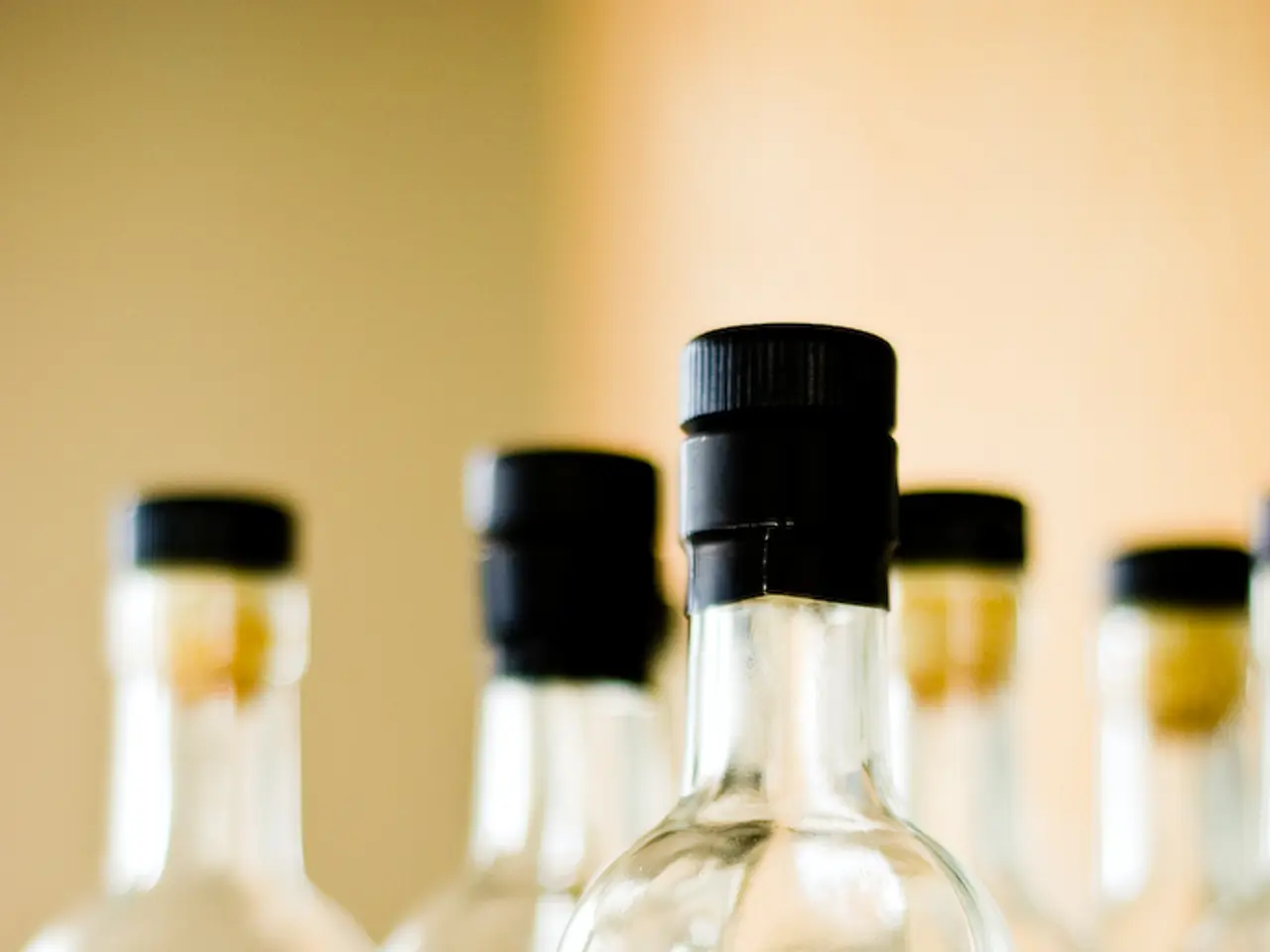Consuming Alcohol Absence Gallbladder: Impact on Health and Body
The gallbladder, a pear-shaped organ located under the liver, stores and concentrates bile. Its removal through a surgical procedure called laparoscopic cholecystectomy is a common medical intervention. But what about alcohol consumption after gallbladder removal?
A 2022 study suggests that light and moderate alcohol consumption may increase the risk of bile tract cancer in people with prediabetes or diabetes, but not in those with "normal" blood sugar levels. However, long-term drinking alcohol after gallbladder removal can have detrimental effects on the digestive system and overall health.
Without the gallbladder, bile that aids fat digestion continuously drips into the intestine rather than being stored and released in controlled amounts. This can make fat digestion less efficient and more sensitive to irritants such as alcohol. Alcohol may interfere with this adaptation process, worsen inflammation, and prolong recovery, making symptoms like abdominal pain and digestive upset worse.
Digestive effects
Without the gallbladder, alcohol can exacerbate diarrhea, nausea, and abdominal pain because it irritates the gastrointestinal tract and disrupts fat digestion.
Liver and pancreas risks
Heavy or regular alcohol intake increases the risk of liver conditions (fatty liver, hepatitis, cirrhosis) and pancreatitis, especially since these organs are closely linked to the digestive system functioning compromised by gallbladder removal.
Overall health impact
Continuous alcohol consumption after surgery delays recovery and may result in chronic digestive inflammation and nutrient malabsorption.
Medical guidance typically recommends avoiding or greatly limiting alcohol consumption after gallbladder removal to support healing and minimize these long-term risks.
It is important to be aware of the body's response to alcohol and track consumption. Excessive alcohol use can result in a variety of chronic illnesses, and after gallbladder removal, it may exacerbate problems such as malabsorption, diarrhea, abdominal pain, and increase the risk of liver disease and pancreatitis since the body must adapt to digesting fats without the gallbladder.
The liver is responsible for metabolizing alcohol, with the enzyme alcohol dehydrogenase playing a crucial role. Excessive alcohol consumption can lead to an overload of this enzyme, potentially causing liver damage.
Structural changes to the digestive system, such as gallbladder removal, may also cause small intestinal bacterial overgrowth (SIBO), a condition characterized by an excessive growth of bacteria in the small intestine. Symptoms of SIBO include bloating, stomach pain, nausea, and constipation.
Experts suggest that people who drink alcohol excessively may have an increased risk of SIBO. Adjusting alcohol consumption after gallbladder removal may involve finding alternatives to alcohol, avoiding triggers, and planning how to manage urges.
In summary, drinking alcohol long-term after gallbladder removal is associated with increased digestive issues, higher risks of liver and pancreatic damage, and delayed recovery, warranting caution or abstinence for optimal digestive system and overall health outcomes. It is important to learn more about bile tract cancer and gallstone disease in relation to alcohol consumption.
- The gallbladder, which stores and concentrates bile, is removed through a procedure called laparoscopic cholecystectomy.
- After gallbladder removal, bile continuously drips into the intestine, making fat digestion less efficient.
- Alcohol may interfere with the adaptation process following gallbladder removal, worsening inflammation and prolonging recovery.
- Excessive alcohol consumption after gallbladder removal can lead to chronic digestive inflammation and nutrient malabsorption.
- During digestion, the liver metabolizes alcohol using the enzyme alcohol dehydrogenase.
- Heavy or regular alcohol intake increases the risk of liver conditions, such as fatty liver, hepatitis, and cirrhosis.
- Pancreatitis, an inflammation of the pancreas, is also a risk associated with heavy alcohol consumption.
- The digestive system's functioning is closely linked to the liver and pancreas, which may be compromised by gallbladder removal.
- Medical guidance recommends avoiding or limiting alcohol consumption after gallbladder removal to support healing and minimize long-term risks.
- It's essential to be aware of the body's response to alcohol and track consumption to prevent chronic illnesses.
- Excessive alcohol use can result in a variety of chronic diseases, such as liver disease, pancreatitis, and digestive upsets.
- After gallbladder removal, alcohol may exacerbate problems such as malabsorption, diarrhea, and abdominal pain.
- Structural changes caused by gallbladder removal may lead to small intestinal bacterial overgrowth (SIBO), a condition characterized by an excessive growth of bacteria in the small intestine.
- Adjusting alcohol consumption after gallbladder removal involves finding alternatives to alcohol and planning how to manage urges.
- Long-term alcohol consumption after gallbladder removal is associated with increased digestive issues and higher risks of liver and pancreatic damage.
- Delayed recovery is another consequence of continuous alcohol consumption after gallbladder removal.
- It's important to learn more about bile tract cancer and gallstone disease in relation to alcohol consumption.
- A 2022 study suggests that alcohol consumption may increase the risk of bile tract cancer in people with prediabetes or diabetes but not in those with normal blood sugar levels.
- Cholecystitis is a type of gallstone disease that can be related to alcohol consumption, particularly in those with a history of heavy drinking.
- Apart from digestive health, alcohol consumption can impact other aspects of health and wellness, such as hearing, eye health, skin care, fitness and exercise, mental health, mens health, and sexual health.
- Additionally, excessive alcohol use can contribute to autoimmune disorders, neurological disorders, respiratory conditions, cancer, and cardiovascular health issues.




